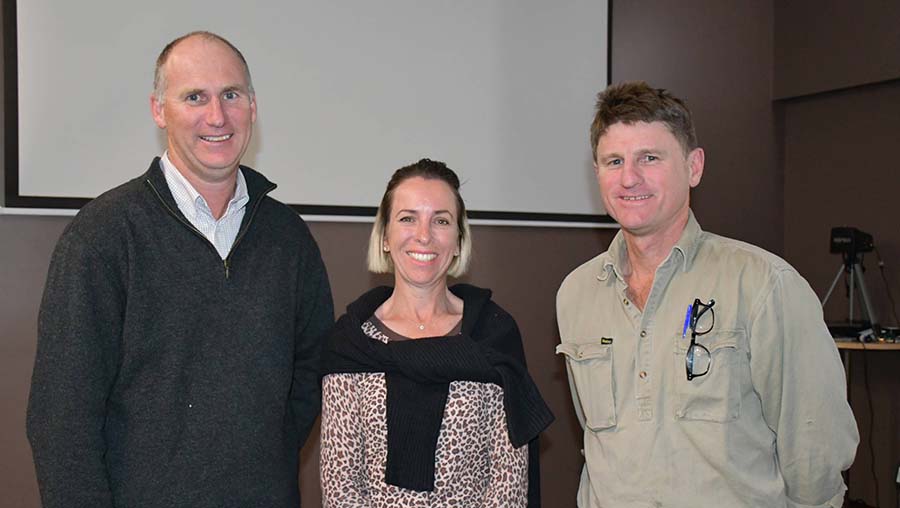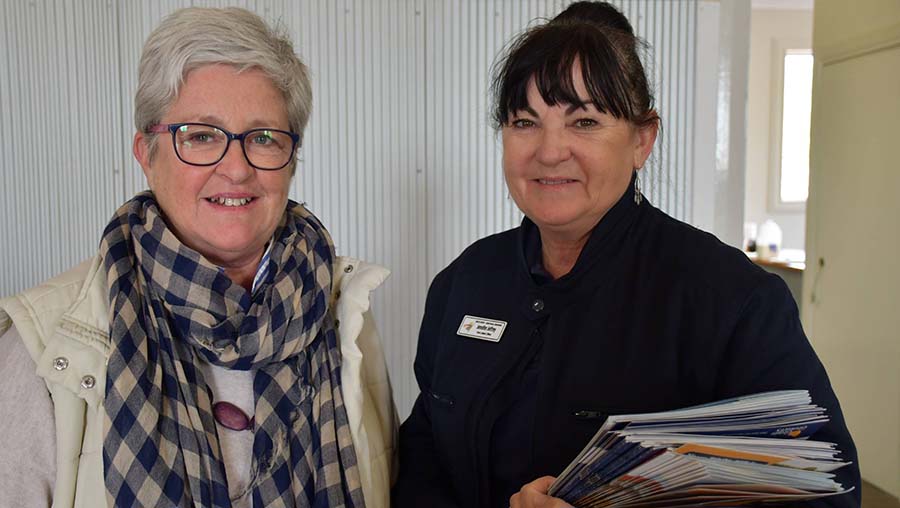A series of GRDC workshops in drought districts in New South Wales and Queensland has helped "worn out" growers maintain a clear management focus to give their businesses the best chance to see-out the record dry.
With the drought in north western NSW and south western Queensland now recognised as the most severe in recorded history, GRDC has been working with growers, through a series of workshops, to help keep everybody focused on the practicalities of managing their businesses to ensure they can respond the moment conditions improve.
'Preparation' was the central thread for the key topics dealt with at 10 'Dealing with the Dry' forums held across the worst-affected regions in July.
Management 'to-do' lists covered paddock maintenance and agronomy, finances, mental health and awareness of government support services for all of these elements.
GRDC Grower Relations Manager - North, Susan McDonnell, who convened the forums, said the idea was to take information and resources to the smaller regional centres in areas still affected by the drought.

Craig Rosenbaum, left, from Coonamble, Bron Johnston, from 'Nelgowrie' in Coonamble, and Simon Cant, from 'Mumblebone' in Warren. Photo: Toni Somes
"We structured the events to be just half-a-day and to-the-point because many growers are hand-feeding stock and simply don't have time to drive long distances to large centres," she said.
A total of 260 growers attended the workshops - four in southern NSW, five in northern NSW and one in southern Queensland.
Ms McDonnell said growers in these regions recognise and base financial plans on the assumption that 75 to 80 per cent of income is made in three out of 10 years.
"This highlights the importance of being 'well positioned' as a farm business to take advantage of good seasons when they occur," she said.
"Past rainfall records for these locations have shown long periods of well below average rainfall from 1900 to the 1960s, and while recorded rainfall has generally been above to well above average since then, the current drought has now exceeded all before it."
The forums were designed to address and discuss the challenges facing farming enterprises, both financially and agronomically, with the central focus on preparing to be in the best possible position to take advantage of opportunities when the season improves.
Presenters at the forums were all chosen for their extensive and practical knowledge of the management 'pillars' discussed, which also reflected the GRDC's shift in focus from production to profitability.
Topics included:
- paddock preparation in dry conditions;
- business resilience;
- how to learn from benchmarking data;
- the impact of the banking and finance sector Royal Commission;
- government services; and
- mental health.
Tightened credit response
One of the presenters was former senior rural manager with Rabobank, Garry Littlejohns, who explained how one of the outcomes of the Royal Commission was a tightening of credit policy.
"It means growers need to make sure they have every piece of information and data possible; their day-to-day management including steps being taken to control weeds and maintain ground cover for soil protection, to make the case for ongoing support," he said.
Mr Littlejohns, who has returned to his first career as an agronomist and now works with AMPS Agribusiness in Tamworth, said a common question put to him was 'how long do I keep going ... how long is too long'?
"Clearly a very hard question to answer, but I encouraged people to try and make it a financial decision; to work with the head, not the heart," he said.
"It's very tough, but they are tough people ... worn out, but tough ... and determined."
Mr Littlejohns said it was heartening to see a lot of young growers attending the workshops - the next generation that had returned to the farm and showed commitment to the business.

Belinda Haigh, left, from 'Macquarie View' in Trangie, and NSW Farm Liaison Officer Jen Jeffrey at a forum in NSW. Photo: Toni Somes
"There was a lot of 'thinking outside the square' happening, such as people finding off-farm work to meet on-farm commitments."
Mr Littlejohns has continued to work with some of those who attended the workshops.
Mungindi-based consultant Michael Brosnan, who also addressed some of the workshops, said growers in his northern NSW region were, and remain, focused on sustaining ground cover as a key element of being prepared for a weather change.
"Everyone knows they need to be ready because farming is all about timing. If you miss the break, it hurts," he said.
Mr Brosnan said growers at the workshops were keen on being informed about the latest cover crop trials.
These showed that contrary to concerns that cover crops further reduce soil moisture levels, they - in fact - repaid their initial moisture take-up. Plus they improved subsequent crop yields by providing additional benefits such as helping to maintain beneficial soil microbes.
"It's two years since growers in this region have had a crop, so this winter everyone was planning to sow wheat or barley, but we didn't get any rain," Mr Brosnan said.
"Now everyone is looking ahead to summer. If there has been rain by September then everyone will be sowing sorghum or millet, just for ground cover. The plan would be to spray it out at Christmas.
"This is the plan and the workshops helped reinforce the need to have this planning in place; to be ready."
Ms McDonnell said the feedback from growers at the forums had been very positive.
"These forums were about bringing communities together and offering support and advice on some really challenging topics, including what government support might be available depending on your situation," she said.
"As growers, we all know our long-term business goals have been put on hold due to our income changes with the drought, so this is about understanding the different ways we can effectively manage our debt and limited cash flow while planning for the future."
More information: Susan McDonnell, 0436 622 649, GRDC Farm Business Management hub

























































